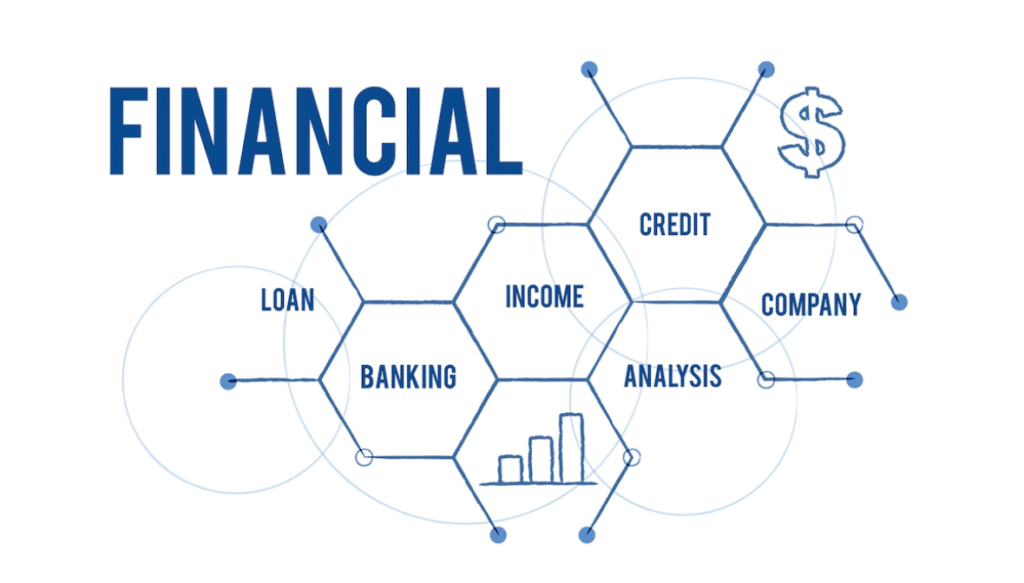Employment in financial services is projected to grow 7 percent from 2020 to 2027, which is faster than the average rate of job growth. Jobs in banking, securities, credit and other financial services will increase by 5 percent over this period. There were about 4,565,000 people employed in finance in 2016, and that number is expected to increase to about 4,850,000 by 2027.
Earning a degree in finance might seem like an easy way to land a job in the field, but there are many other factors that go into the hiring process. In this article, you’ll learn about the types of financial institutions, how many jobs are available in finance, and more about your options if you wish to work in finance after college.
Depending on the type of financial institution you’re interested in working at, there are thousands of job opportunities to consider! There are jobs available at banks and credit unions, financial services companies, investment firms, non-profit organizations, government agencies and more.
The U.S. Bureau of Labor Statistics projects that between the years 2019 and 2029, the amount of money-related jobs will grow by 5%, which is faster than average compared to all other occupations in the United States!
what is Financial job

There is a wide range of financial job opportunities for those who want to get involved in finance. Financial planning jobs, for instance, often involve helping people decide how to invest their money or manage debts. Financial analysts need skills such as modeling and critical thinking to help investors decide what shares or funds to buy.
Aspiring investment bankers work on mergers and acquisitions that could shape industries for years to come. And financial examiners ensure companies are paying their taxes correctly. Financial professionals also have more creative options available to them: they can become personal financial advisors, run an accounting firm or start up a business consulting firm. Title: The Different Types of Financial Jobs
What skills are needed for a career in this field?
Your career options within financial institutions largely depend on which facet of finance you wish to work in. Each field requires a different skill set: Portfolio management professionals may require public speaking, communication and leadership skills, while those looking to work for an investment bank will need strong analytical abilities.
Regardless of your area of interest, however, it’s important to have some sort of financial background or education before entering into any financial-related position. Most employers prefer candidates with bachelor’s degrees or higher who have earned at least some type of certification or accreditation from a professional organization such as CFA Institute or Chartered Financial Analyst (CFA).
What education level do I need to get started with my career?
The education level of new entrants into many business-related occupations is increasing. For instance, 54% of financial managers reported having a bachelor’s degree as their highest level of education and 45% reported having an advanced degree (e.g., master’s or doctorate). The BLS notes that employers often require employees to have advanced degrees to meet specialized needs, be it more knowledge or skill set than can be acquired through on-the-job training.
What kind of salary can you expect after completing these programs?
The median annual wage for financial specialists was $78,750 in May 2017. The median wage is the wage at which half the workers in an occupation earned more than that amount and half earned less. The lowest 10 percent earned less than $47,530, and the highest 10 percent earned more than $149,860.
Financial specialists in computer support jobs usually earn more than financial specialists who hold office jobs. Computer support financial specialists earned a median annual wage of $87,120 in May 2017. In contrast, financial specialists employed by management of companies and enterprises had a lower median salary of $67,240.
What kinds of financial institutions are there?

According to Bureau of Labor Statistics, finance managers who work for companies like banks and other financial institutions make up 19% of all financial industry jobs. Sales agents who sell financial products at brokerage firms and other types of financial services companies make up another 13% of all jobs, making them second-most popular. Collectively, those two positions account for 32% of all positions in finance-related industries. This includes personal investment advisors, who manage clients’ wealth and retirement accounts—5% of these jobs exist as well.
Who hires at financial institutions?
The finance industry is expanding at a faster pace than other industries, with the number of workers on track to increase by 5% between 2019 and 2029. In fact, financial institutions offer one of fastest-growing job markets within all industries. Unfortunately, not all banking jobs require applicants to have a degree – some only ask for experience.
So, if you’re interested in working as a teller or a customer service representative, there are many opportunities available across different sectors. If you’re more interested in working as an investment banker or wealth manager, however, you might want to consider getting your MBA first because these positions typically require advanced degrees.
How Many Jobs are Available in Finance
In 2015, there were 4.8 million Americans working as financial advisers and 4.3 million people working as accountants and auditors. These two categories accounted for about 23% of all people working in finance-related occupations, which added up to a total of 8.1 million people across every state and city within America’s borders that year.
The U.S. Bureau of Labor Statistics estimates that financial adviser jobs will grow by 5% between 2019 and 2029, while accountant and auditor jobs will increase by 2%. This means that in just 10 years time, more than 9 million people will be employed in finance-related jobs across America.
What job titles exist within this industry?

There is a large number of job opportunities within financial institutions. The Bureau of Labor Statistics lists hundreds of different positions under business and financial occupations; they list:
- Banking Industry
- Accounting & Auditing
- Financing
- Insurance
- Economic Research
- International Trade
- Financial Analysis & Management Consulting
- Insurance Agents & Brokers
- Personal wealth management
- Business services
and tellers and bank tellers as well as loan officers, bank and credit analysts, accountants, lenders, loan processors, clerks and record keepers.
where to find these jobs
While finance-related jobs span a wide variety of fields and sectors, you’ll find them in most large cities. For example, New York City has almost 15,000 financial services jobs alone. Also, be sure to investigate online postings. Online lenders like Lending Club offer positions ranging from loan underwriters to account managers; larger firms like J.P. Morgan Chase & Co. also post openings on their websites.
Finally, if you want to work with other people who have similar interests or career goals, consider joining a professional association for your field of interest. For example, if you want to work in banking, consider joining The Association for Financial Professionals (AFP).
Where do these professionals work?
While most financial professionals work for financial institutions like banks and insurance companies, many independent finance professionals can be found working on their own. These individuals typically have experience with a large financial institution, and they may choose to open their own office or agency offering similar services. Others might decide to offer certain services such as personal financial planning that require less overhead than standard banking.
On average, how much do financial services workers earn annually?
The Bureau of Labor Statistics (BLS) reported that business and financial operations occupations earned a median annual salary of $87,440 as of May 2018. This means half of workers earned more than $87,440 annually, while half earned less. Financial services employees with higher levels of experience or education generally made more money than their counterparts.
For example, financial analysts had an average income of $104,640 as of 2017. The BLS also revealed that four out of five financial services jobs were concentrated in larger companies. Employees working for small businesses only made up about 15% of financial services industry positions. However, these roles still accounted for roughly one-third of all financial service industry earnings.
What types of benefits should I look for when I’m looking for a new job in this field?
Your benefits will vary depending on your industry and job title, but these options typically include some combination of health insurance, dental care, vision plans and life insurance. You might also have access to paid time off (PTO) or vacation days as well as a retirement plan like a 401(k). Financial institutions may also offer tuition reimbursement for courses related to your job responsibilities. This is especially common for higher-level positions like managers who need specialized training on tools used by their staff or products offered by their employers.
Conclusion
There will be more than 1.7 million jobs available for people with a bachelor’s degree or higher, and 2.5 million jobs available for those with an associate’s degree or higher by 2029. Although money-related job opportunities are likely to grow by 5% between 2019 and 2029, there are many other related fields that offer opportunities as well. For example, you could go into finance if you have experience working as a computer programmer or paralegal, which would bring more job opportunities your way.
It’s important to keep your options open when it comes to choosing a career path. If you don’t like your current job, consider switching careers—but make sure it aligns with what you’re interested in doing!
Frequently Asked Questions
Q1. How to get started?
If you’re interested in learning more about financial institutions and finance-related jobs, start by reading some books. The Economist’s Guide to Analysing Companies by Neil Parnell is a good place to start, as is Michael Lewis’s The Big Short: Inside the Doomsday Machine. It may also be helpful to pick up a copy of Fortune’s Wall Street Occupational Handbook: Step-by-Step Entry Into Today’s Top Financial Services Jobs; you can learn more here.
Q3. Who needs financial advisors?
In general, financial advisors can be useful for people who need help with their financial decisions. According to recent research from GOBankingRates, two-thirds of Americans say they don’t have a financial advisor and don’t feel like they need one — but financial advisory jobs will be among some of the fastest growing professions by 2029.
Q4. What does a personal banker do?
A personal banker is responsible for providing financial services, such as opening accounts and keeping records of customer activity. They also help customers manage their accounts and make money transfers. According to job search site Glassdoor, personal bankers make around $45,000 per year on average. In addition to salaries offered by banks, there’s an opportunity for financial professionals to earn additional income through commissions based on sales revenue.
Q5. What does a loan officer do for a bank?
A loan officer reviews applications for mortgages and lines of credit, and then presents qualified applicants to a board that decides whether or not to approve them. They must have a strong knowledge of financial laws, regulations and business practices. (Photo: Ryan McVay/Getty Images) : A loan officer reviews applications for mortgages and lines of credit, and then presents qualified applicants to a board that decides whether or not to approve them. They must have a strong knowledge of financial laws, regulations and business practices.
Q6. Other financial jobs at banks?
Just like banks hire tellers and loan officers, they also hire accountants and customer service reps. They may even have positions such as compliance managers or risk managers—all of which are concerned with financial products and protection. So if you’re looking to work in a bank but don’t want to be a banker, there’s plenty of opportunity for a career path outside finance.
Q7. What does an accountant do for a bank?
You don’t have to be good with numbers to work as an accountant. Your main job is to reconcile data from other departments and produce financial statements. You’ll also handle budgeting, cash management, and accounting policies for your company. If you enjoy working with numbers and getting deep into financial processes, then a career as an accountant might be perfect for you.
Q8. Requirements for landing a job?
While there is no set education requirement, there is a specific background required to even land an interview with most financial institutions. Applicants need at least three years of finance experience and a bachelor’s degree to have an edge over other job candidates. While many employers would prefer a candidate with a master’s or higher, having a bachelor’s degree from an accredited university can help you get your foot in the door and on your way to advancing through their career ladder.
Q9. Benefits?
While there’s a lot of jobs available within finance, it’s also important to note that these careers can be financially lucrative. The average salary for an entry-level employee with an undergraduate degree working in finance is $68,000. For new graduates with a master’s or doctoral degree, it jumps up to nearly $110,000 per year. In addition to high pay potential, your education and experience gained on your career path could make you eligible for retirement packages worth millions of dollars.
